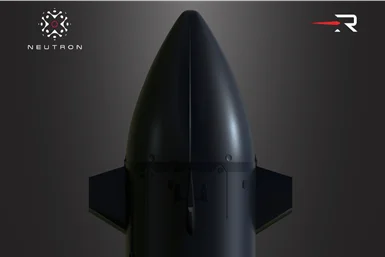
Rocket Lab’s Neutron Rocket: A Game Changer for Space Force and Global Logistics?
Rocket Lab is making significant strides in the space industry with its Neutron rocket, garnering attention from both the U.S. Air Force and the U.S. Space Force. This medium-lift, reusable rocket is poised to revolutionize space logistics and national security missions. But how exactly will it achieve this, and what does it mean for the future of space exploration and defense?
In a groundbreaking move, Rocket Lab has partnered with the U.S. Air Force Research Laboratory (AFRL) to conduct a return-to-Earth cargo mission using the Neutron rocket. This mission, scheduled for no earlier than 2026, is part of AFRL's Rocket Experimentation for Global Agile Logistics (REGAL) program. The goal is to establish a rocket-based point-to-point transportation system for rapid global cargo delivery.
"Neutron is a powerful new launch option that will set a new standard for performance, affordability, and reliability," says Sir Peter Beck, Rocket Lab founder and CEO. This partnership with the Air Force demonstrates a high degree of confidence in Neutron's capabilities, positioning it as a key platform for advancing space logistics and defense capabilities.
Rocket Lab was also selected by the U.S. Space Force in March 2025 to compete for the Department of Defense’s (DOD) high-priority national security missions under the National Security Space Launch (NSSL) Phase 3 Lane 1 program. This program allows Rocket Lab to compete for missions with other providers, including SpaceX and Blue Origin.

Neutron's design allows it to deploy payloads up to 13,000 kilograms. Its first launch is scheduled for the second half of 2025 from Launch Complex 3 in Wallops Island, Virginia. According to Rocket Lab, "Supporting assured access to space for the nation’s most important missions has always been the goal with our Neutron rocket, and we’re incredibly proud to selected by the U.S. Space Force to demonstrate this commitment for the NSSL."
The NSSL Lane 1 program involves stringent requirements to develop a diversified and competitive domestic launch base. Rocket Lab will receive a $5 million task order to perform a capabilities assessment for launches awarded through this program.
The progress on Neutron’s launch pad at Wallops Island, Virginia, is expected to be completed in the coming weeks. Production, infrastructure scaling, and engine testing are ongoing across Rocket Lab’s facilities.
With the Neutron rocket, Rocket Lab is not only aiming to provide affordable and reliable launch services but also positioning itself as an end-to-end space company. The company has already achieved 63 Electron launches to date and is one of only two U.S. launch providers to have launched multiple payloads to orbit in 2025.
The Neutron rocket is poised to significantly impact both the commercial and government space sectors. Its reusability, medium-lift capacity, and cutting-edge technology make it a key player in the future of space transportation. What do you think about this new era of space logistics? How will the Neutron rocket influence future space missions and national security?
Share your thoughts and opinions in the comments below!